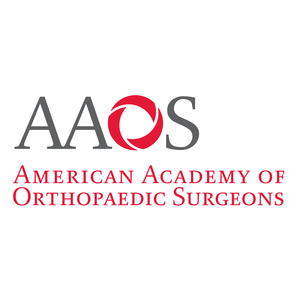SAN DIEGO, Aug. 31, 2021 /PRNewswire/ -- According to three studies presented at the 2021 Annual Meeting of the American Academy of Orthopaedic Surgeons (AAOS), using cannabis before total knee arthroplasty (TKA) and total hip arthroplasty (THA) can lead to increased complications, longer hospital stays, higher rates of adverse events, increased readmissions, and higher costs. These studies point to the need for further research and will help orthopaedic surgeons educate and counsel patients prior to surgery.
Cannabis use in the United States
As more states in the U.S. legalize cannabis use, there has been an increase in usage for both medicinal and recreation purposes, including an increase among the older populations. From 2002 to 2014, marijuana consumption increased 48% in adults ages 45 to 54 and 455% in adults ages 55 to 64. However, the impact of cannabis use on the outcomes of TKA and THA has not been well studied.
Preoperative marijuana and TKA: Outcomes at 90 days and one year
Employing a large insurance database, researchers (led by Chukwuweike Gwam, MD, orthopaedic surgery resident, Wake Forest Baptist Medical Center in Winston-Salem, N.C.) retrospectively reviewed 3,308 TKA patients between 2010 and 2018 to assess 90-day and one-year outcomes (opioid consumption, readmissions, revisions, and complications) in a matched cohort of patients who consumed cannabis preoperatively and those who did not. The findings noted:
- Dislocation rates were significantly higher among marijuana users than nonusers at both 90 days and one year.
- Opioid consumption and revision rates were similar or not significantly different between the groups at 90 days.
- Revisions and all complications were similar in occurrence at 90 days and year.
The association of cannabis use disorder and perioperative complications following TKA
Investigators (led by Rushabh Vakharia, MD, research fellow, Maimonides Medical Center, Brooklyn, N.Y.) studied the association of cannabis use disorder (CUD), which is a problematic pattern of using cannabis in progressively larger amounts over period of time, on outcomes following primary TKA. Using a private database, 55,553 patients were enrolled in the CUD (n = 9,260) and case-matched populations (n = 46,293), and investigators performed a retrospective query from Jan. 1, 2008, to March 31, 2018. The study demonstrated:
- CUD patients had significantly longer in-hospital length of stay (3.61 vs. 2.07 days) compared to their counterparts. Over the course of the study period, in-hospital length of stay (LOS) for CUD patients increased from an average of 2.93 days in 2010 to 3.93 days in 2018.
- Patients with CUD had significantly higher likelihood of developing medical complications within 90 days (28.08% vs. 12.50%), including pneumonia, respiratory failures, myocardial infarctions, cerebrovascular accidents, and acute kidney injuries, in addition to other medical complications.
- CUD was also associated with higher rates of prostheses-related complications compared to controls (9.63% vs. 5.16%).
- Patients with CUD had significantly higher day of surgery costs ($24,292.15 vs. $20,616.40) and total global 90-day episode of care costs ($29,025.34 vs. $24,258.17).
A matched-control analysis on the effects of CUD on in-hospital LOS, complications and costs following primary THA
The study (led by Asad Ashraf, MD, orthopaedic surgery resident, Maimonides Medical Center, Brooklyn, N.Y.) was designed to determine whether CUD patients undergoing primary THA have higher rates of in-hospital LOS, complications, and costs of care. Investigators compiled a retrospective query from Jan. 1, 2008, to Dec. 31, 2018. The query compiled from a private payor database produced 44,154 patients who underwent primary THA; the patients were then divided into those with CUD (n = 7,361) and without CUD (n = 36,793). The researchers found:
- CUD patients undergoing primary THA had significantly longer in-hospital LOS (4 vs. 3 days) compared to the control group.
- CUD patients experienced a higher frequency of adverse events (11.23% vs. 4.82%), including higher rates of pneumonia, respiratory failure, cerebrovascular accidents, urinary tract infections, and acute renal failure.
- CUD patients had significantly higher total global 90-day costs of care ($24,585.96 vs. $23,724.93).
# # #
2021 AAOS Annual Meeting Disclosure Statement
About the AAOS
With more than 39,000 members, the American Academy of Orthopaedic Surgeons is the world's largest medical association of musculoskeletal specialists. The AAOS is the trusted leader in advancing musculoskeletal health. It provides the highest quality, most comprehensive education to help orthopaedic surgeons and allied health professionals at every career level best treat patients in their daily practices. The AAOS is the source for information on bone and joint conditions, treatments, and related musculoskeletal health care issues, and it leads the health care discussion on advancing quality.
Follow the AAOS on Facebook, Twitter, LinkedIn, and Instagram.
SOURCE American Academy of Orthopaedic Surgeons

Related Links
WANT YOUR COMPANY'S NEWS FEATURED ON PRNEWSWIRE.COM?
Newsrooms &
Influencers
Digital Media
Outlets
Journalists
Opted In





Share this article